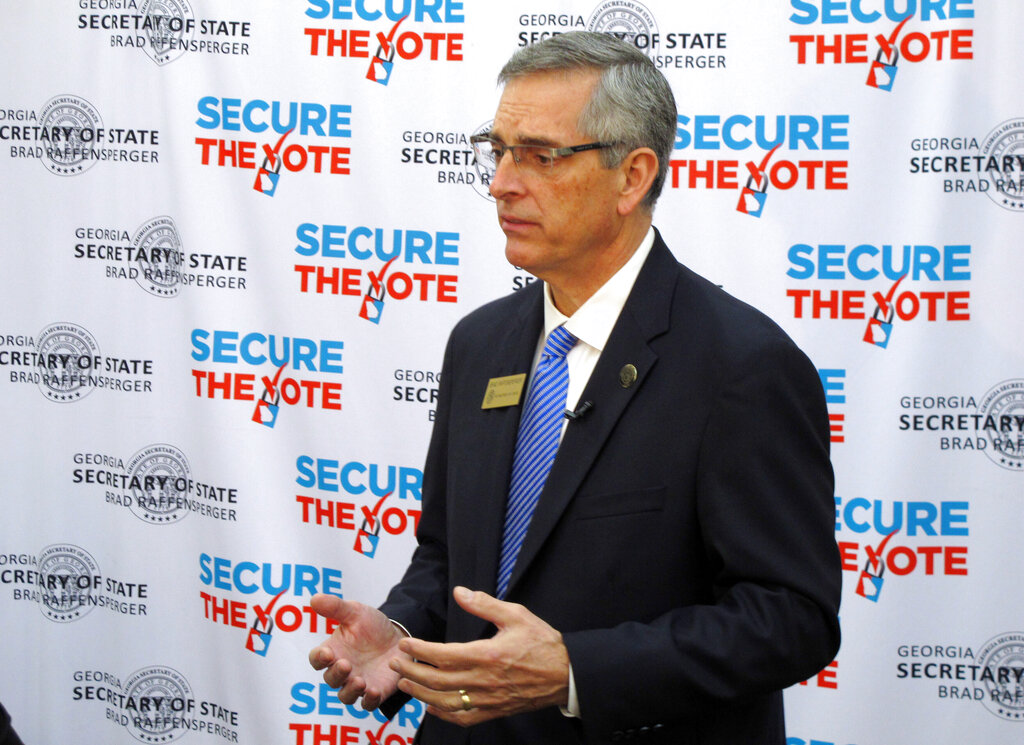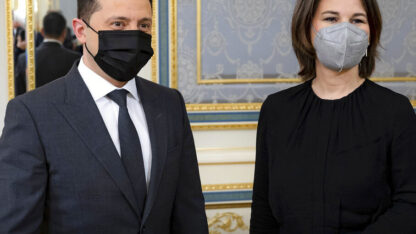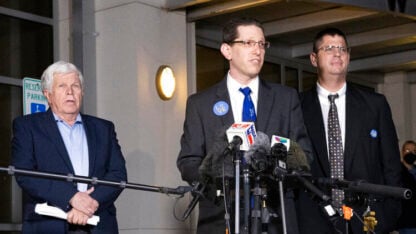Raffensperger Talks County-Level Poll Training, Recruitment, Changes Needed Before November Vote

Georgia Secretary of State Brad Raffensperger discussed how recruitment efforts for poll workers are going, among other topics, on “All Things Considered.”
Russ Bynum / Associated Press file
Georgia Secretary of State Brad Raffensperger recently put out a call asking members of religious, civil and nonprofit groups to step up and work the state’s polls this November.
That push comes as several groups, including the Democratic Party of Georgia, filed a federal lawsuit against Raffensperger, and county elections officials, over long lines and complications at the polls. It asks a federal judge to intervene and alleges officials are “directly responsible” for issues during multiple elections, including the June 9 primary amid the coronavirus pandemic.
WABE’s “All Things Considered” host Jim Burress spoke with Raffensperger about how poll recruitment efforts are going, just before the last day of early voting for Georgia’s Aug. 11 runoff elections.
He’s been critical of Fulton County specifically and said he still has concerns about the proper training of poll workers.
“I’m a voter in Fulton County, and I did have issues when I went to vote in person,” Raffensperger said.
“I am a Republican, and the poll worker, she said there’s no Republican race here. But Republicans can vote on the nonpartisan ballot.”
He said when he asked for the correct ballot, poll workers gave him the Democratic ballot.
“So that gets down to basic training,” Raffensperger said.
“The counties do the training of those poll workers. We do the training of the trainers. But it’s really getting that down to the level of the precincts.”
The “All Things Considered” crew will also be broadcasting live from State Farm Arena on Aug. 7.
The home of the Atlanta Hawks has been transformed into the largest polling place in Georgia’s history. The Hawks and Fulton County partnered to ensure long lines were done away with in August and September.
During the June 9 primary elections, voters in counties like Fulton and DeKalb waited in line at some locations for hours. The issues were disruptive enough that Raffensperger opened an investigation into how elections officials handled the process.
Raffensperger’s office told WABE that many of those issues had to do with long-term polling locations backing out only weeks before the June primaries.
Lily Oppenheimer contributed to this report.








